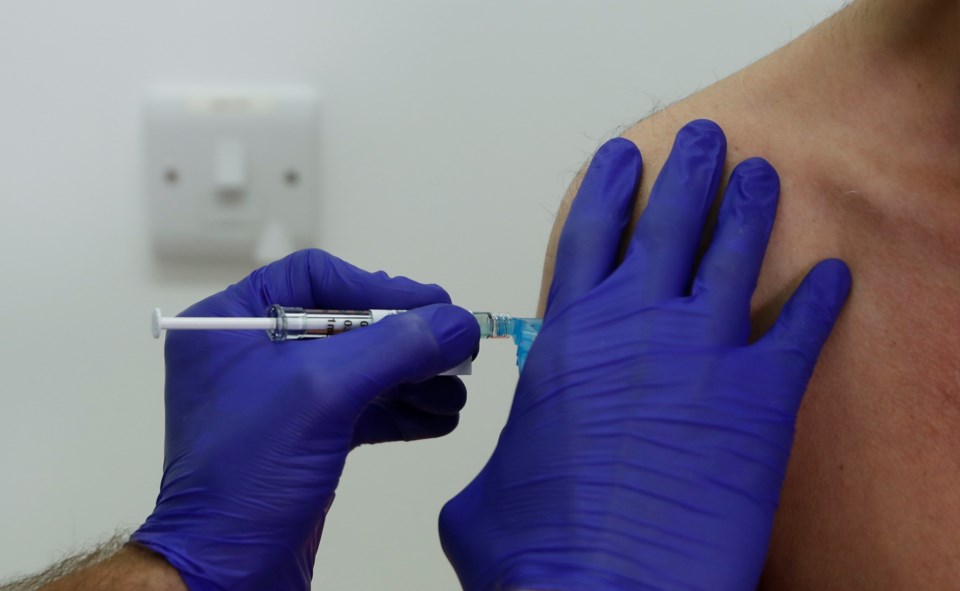Canada is taking steps towards producing COVID-19 vaccines domestically, announcing a tentative agreement with U.S. company Novavax on Tuesday to manufacture millions of doses of the shot once they're approved here.
Clinical trials are still underway for Novavax's product, but Prime Minister Justin Trudeau says if Health Canada approves the vaccine, a new National Research Council facility in Montreal can begin producing the inoculations later this year.
Here's what we know about the Novavax vaccine:
WHEN CAN APPROVAL BE EXPECTED?
Novavax submitted its COVID-19 vaccine to Health Canada last week for regulatory approval via rolling review, which allows for faster authorization once the final results from clinical trials are complete.
The rolling review process, whereby countries can analyze data from clinical trials as they happen, has been used with other vaccines throughout the pandemic, including ones approved from Pfizer-BioNTech and Moderna.
Novavax reported results from a trial in the United Kingdom last week, saying its two-dose jab was 89 per cent effective. It also appeared to offer some level of protection against the two coronavirus variants first detected in the U.K. and South Africa.
More than half the COVID-19 cases identified in Novavax's British trial were the B.1.1.7 variant and 90 per cent of the cases in a South African trial were B.1.351.
A large trial in the U.S. may still be months away from yielding final results, however.
Canada has a deal to purchase 52 million doses of the Novavax vaccine.
HOW DOES THE VACCINE WORK?
Unlike Pfizer-BioNTech and Moderna's mRNA technology, Novavax used a protein subunit vaccine.
Whereas traditional vaccines use entire pathogens that have been killed or weakened so that they can't cause disease when injected in the body, subunit vaccines contain only the components of a pathogen that trigger an immune response, explains the U.S.-based National Institute of Allergy and Infectious Disease (NIAID).
Other examples of protein-based subunit vaccines include the hepatitis B and acellular pertussis (whooping cough) shots.
Novavax uses a lab-made version of the SARS-CoV-2 spike protein, which doesn't cause illness.
NIAID says using only the components that stimulate the immune system, called antigens, in a vaccine can minimize side effects. They also usually need the addition of adjuvants, which are ingredients that can "accelerate, enhance and prolong the immune response."
WHAT ARE THE BENEFITS OF THE NOVAVAX'S PRODUCT?
The Novavax vaccine can be stored in a regular fridge, unlike Moderna which needs a freezer, or Pfizer-BioNTech which requires ultra-cold storage.
That could help in distributing the vaccine to more remote areas of the country that don't have access to ultra-cold freezer technology.
Novavax's two-dose regimen, like the mRNA vaccines, were taken roughly a month apart in clinical trials. So potential logistic problems in ensuring people return for their second shots, and making sure doses are available when they need them, remain.
If further data show effectiveness of the Novavax vaccine against new variants of the COVID virus, which are most transmissible than earlier strains, that could also give this product a leg up.
While experts expect vaccines from Pfizer and Moderna to offer some protection against those variants, their clinical trials happened before the mutated strains began circulating widely.
This report by The Canadian Press was first published Feb. 2, 2021.
The Canadian Press



